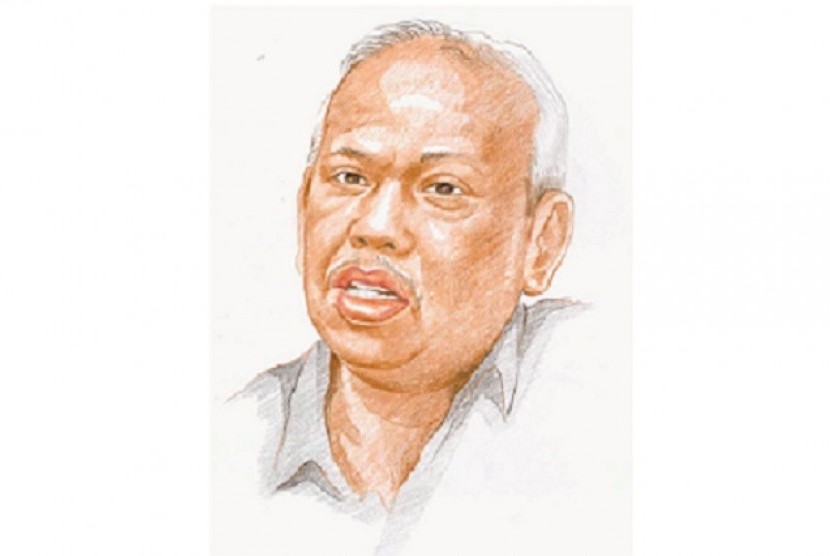REPUBLIKA.CO.ID, By Azyumardi Azra
I've been fazed a bit longer listening news from Egypt which until now continues to churn. The military regime of President Adly Mansur as a 'puppet' president who not just hold President Mohammed Mursi (from al-Ikhwan al-Muslimun/IM) for unknown period, but also arrest other IM leaders as well as freeze various IM asset and facilities.
Another thing that made me upset is license revocation of 53 thousand priests (imam), preacher (khatib), ustaz and mubaligh or religious speaker from, or suspected to be sympathizers of, IM. The license revoked by Ministry of Endowments in charge of religious matter on the blessing of the Grand Sheikh of al-Azhar. Only those who have a diploma and a license from the al-Azhar Board of Da'wah allowed to deliver religious preaching.
Egyptian authorities obviously do not care about the criticism. In the midst of our concerns from Indonesia, one thing seems almost certain, many mosques in Egypt soon will witness shortage in preacher number. According to estimates, there are about 110 thousand registered mosques throughout Egypt. If every mosque require one imam who also serves as mubaligh and khatib so it need 110 thousand staff.
Upon revocation of 53 thousand license, now it left only 58 thousand imam-khatib who have passed qualification and have a license of al-Azhar. With the difference of the figure, many mosque encountered with imam-khatib scarcity, unless al-Azhar immediately filled it with newly qualified imam-khatib predefined by al-Azhar itself and related ministries.
Why the license of preacher associated with IM should be revoked? Obviously the reason is political, rather than any other reason. However, according to the head of al-Azhar, the preachers exploited the mosque through lectures for political purposes. IM preachers (accused of being-ed) inciting, provoking, and spreading hatred against the government.
Furthermore, it seems, to limit the mass concentration during Friday worship -which usually turns into a mass mobilization- the Egyptian government also set that only the mosque with an area of at least 80 square meters allowed to hold jumatan. In this way, the number of mosques that hold Friday worship is reduced slightly further easing the task of the Egyptian military and police on controlling mass movement after Friday prayers.
All policies and actions of the Egyptian government are clearly contrary to preaching duties, as well as the democratic principle of freedom of speech and thoughts. Despite, it's clear that the freedom should be balanced by the obligation to respect other's right of freedom.
Apart from the last question, many lessons can be learned by religious preachers in our country. First of all, all mubaligh, imam, khatib and such in the country should be grateful because there are no regulations, policies, and indications of license enforcement for preachers. If in the Dutch and Japanese colonial period there were no rules and policies like it, does it make sense if the independent Indonesian government had an intention of adopting the provisions of the license for the imam-khatib and other religious speaker. I am sure, I will be among the first to oppose if there is an idea or an effort to go for license enforcement for the preacher.
However, it's not less important, in order to maintain a sense of gratitude, the freedom of imam-khatib or mubaligh should be preserved in a responsible manner. It is important to point out because it is not often to be found a Friday preacher or ustaz and mubaligh who do not nourish that freedom responsibly.
In contrast, among those, there are people using the pulpit to preach for indulgence in anger for audience (jamaah) that they consider rudimentary (not kafah) in practicing Islamic teaching. Often, audience have to listen to the preacher or speaker's slur against government officials, which in their perception, has taken and implement un-Islamic policies and measures or even 'destroy' Islam .
In the atmosphere of a hot and provocative lecture, audience could not do anything, but just to listen. It's unusual for audience -especially when Friday sermons are conducted- to interrupt the sermon or lectures. Nor is it possible for them who do not like the sermon were worth leaving preacher sermon to go to another mosque. They could certainly not be able to pursue Friday prayers in other mosques on time.
Therefore, the other preacher and lecturer must use freedom of speech wisely. Religious lectures and sermons should not be used as a political agitation and provocation. Conversely, religious speech should be a coaching oriented approach for Muslims to be the subject of rahmatan lil 'alamin, which actualize the peaceful teaching of Islam for the universe.


